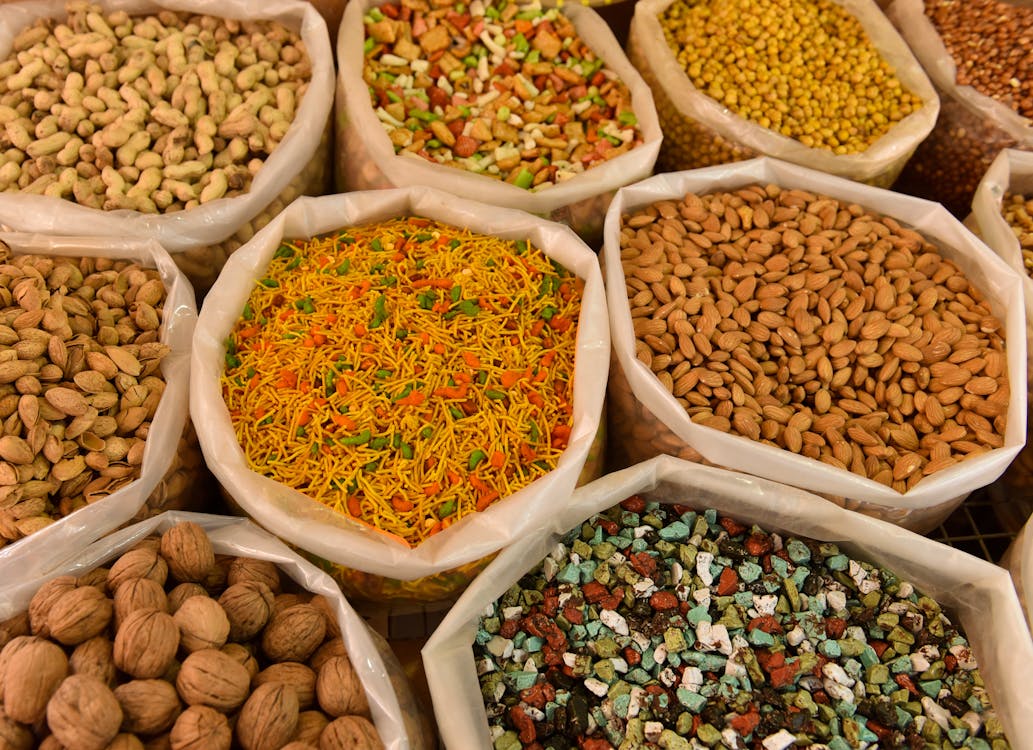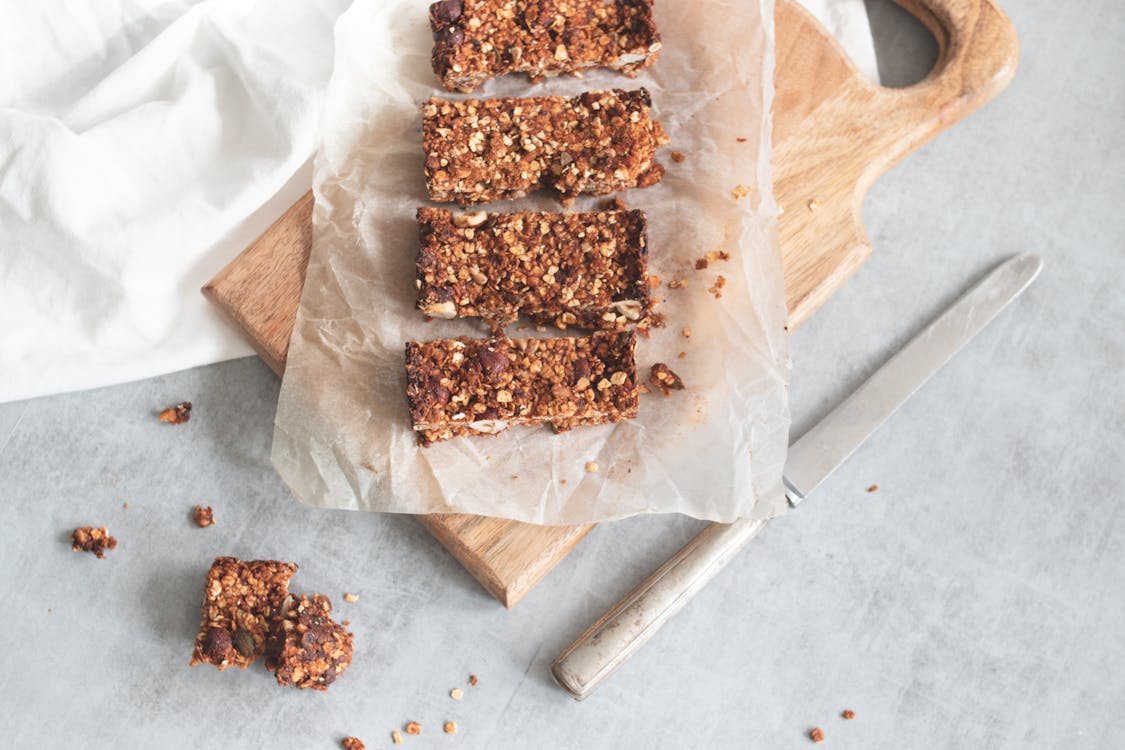
Hiking is a favorite summer past-time for many people. Hiking in nature is an excellent way to maintain good physical, mental and emotional health. People who hike regularly are often rewarded with a stunning view atop a mountain, or a quick dip in a swimming hole at the end of a long trail. Hiking combines cardiovascular exercise with resistance training, and provides many muscle groups with a killer workout session, most notably your core, glutes and legs. When done with friends, hiking is a pleasant activity that’s a great way to increase your physical activity without it feeling like a chore. Plus, who doesn’t love nature and scenery?
Hikes vary in difficulty, but to get the most out of your hike, it’s important that you’re well-fueled and pack good hiking snacks. What’s more, hiking in the wilderness comes with certain risks (such as the risk of getting lost) and having extra food in your backpack is always a good idea. You’ll be grateful to have those extra hiking snacks in case you get lost, injured and waiting for help, or your hike ends up taking you a lot longer to complete than you anticipated.
Choosing foods that are nutrient-dense and take up minimal space in your hiking backpack will ensure you can enjoy your hike in its entirety without weighing you down. So, with that in mind, we’ve rounded up a list of some of the best small snacks you can take with you on your next hike, for energy and hiking fuel.
1. Apple Slices with Peanut Butter
Apple slices are a great option for hiking snacks, because they’re a firmer fruit, meaning they won’t be easily squashed as the contents of your hiking pack get jostled about. Plus, they pack easily and don’t take up much space. Apples are a source of healthy carbs you can use as fuel to finish the hike, and fiber. Plus, the fructose and potassium within them will give you a much needed boost. Dip them in natural peanut butter to add heart-healthy fats and protein, as well as an extra boost of energy.

2. Oranges, Clementines or Mandarins
Oranges are a good source of thiamin, or B1. Thiamin helps turn the food you eat into energy, which might be why you’ve seen oranges being handed out to athletes during sports games. Be sure to carry out your peelings with you, or pre-slice them to make cleaning up easier.
3. Veggie Sticks with Hummus
Hummus is a great source of protein and is easy to make yourself, but can also be bought pre-made in small containers that are the perfect portion size for a day hike. While hummus is perishable, it doesn’t necessarily need to be refrigerated and can easily last a day in your backpack while you’re out hiking. Dip veggie sticks (such as carrot sticks) or whole wheat pita for added carbohydrates.
4. Jerky
Jerky is the perfect choice for day hikes and multi-day trips alike. It packs easily, is very lightweight, and contains ample amounts of protein. While jerky has been demonized by some groups for its high sodium content, the salt will actually help your body regulate its hydration, which is very important while hiking, especially on a hot day.
5. Wraps
Wraps take up less space in your bag than a sandwich container and are easier to eat on the trail because you will be less likely to drop the ingredients onto the ground that might attract bears or other wildlife. To make them even smaller, try cutting them in half. You can fill your wraps with slices of deli meat, alfalfa sprouts, green peppers, and healthy fats such as avocado or hummus.

6. Trail Mix
Healthy fats from nuts and seeds coupled with a small amount of sugar from dark chocolate and dried fruit combine to make an easily portable snack that is synonymous with hiking. A small handful of trail mix can provide a surprising amount of energy during a hike.
7. Overnight Oats
Oatmeal is one of the most nutrient-dense foods out there. Packed with slow-release carbs, fiber, protein and fat, oatmeal also contains minerals and vitamins. Prepare a container of overnight oats by combining oatmeal with yogurt, milk and any fruit or topping in a lightweight plastic container, and store in the fridge until you’re ready to throw it into your backpack.
It’s best to consume your container of overnight oats no more than 3 – 4 hours into your hike, so if you pack several snacks, this should be one of the first ones you eat.
8. Fat Bombs or Bliss Balls
If you’re trying to remain in ketosis, then a low-carb snack is more up your alley. These bliss balls (sometimes called fat bombs) are little energy balls that take up very little room in your backpack, but pack a serious nutritional punch.

9. Granola or Protein Bars
Many store-bought varieties of granola bars or power bars contain high amounts of sugar that only lead to a crash, which is something you definitely want to avoid on a hike. Make a batch of your own healthier version here, and store what you don’t pack for your hike in the fridge or freezer.
10. Bananas
For many people, 1 banana provides enough energy for a 90 minute workout, and they also contain a good amount of potassium.
Potassium is a mineral that helps regulate muscle contraction, something that will prove helpful on hikes of all levels of difficulty but especially more technical hikes that require climbing and scaling. Many fruits and vegetables contain potassium, but bananas are one of the best sources of potassium. Pack them last to prevent bruising.
11. Crackers or Pretzels
Like jerky, the salt on pretzels and in crackers can aid in hydration regulation on hot summer days made for hiking. However, unlike jerky, crackers and pretzels supply your body with the carbs it needs to keep moving. Choose whole-wheat varieties to get the most nutritional value.
12. Mini Pancakes
Pancakes don’t only have to be for breakfast. Pre-cook smaller versions of healthy whole wheat pancakes to keep in your freezer, and bring some along on your next hike. You can smear peanut butter, Nutella or homemade jam on top to make them more flavourful.
13. Apple Sauce
Store-bought applesauce or baby food often comes in resealable containers, making it an easy snack to pack for a hike. Baby food is made mostly from pureed fruits and vegetables, so it is a relatively healthy choice, just be sure to check the label for added sugar content. If possible, choose baby food that contains slow-release complex carbohydrates like sweet potatoes, cauliflower, carrots and peas. Both applesauce and baby food can be eaten on their own, or used as a spread or dip for crackers, granola bars or pancakes.
Hiking Snacks to Avoid if You Have Food Sensitivities
If you have any genetic food sensitivities or food intolerances, you’ll need to be especially careful what you pack for hiking snacks. The last thing you need while you’re hiking is uncomfortable stomach cramps. If you’re lactose intolerant, for example, and you want to pack a container of overnight oats, it’s crucial to use a non-dairy milk such as a nut milk.
To find out about potential food sensitivities you might have, as well as the optimal diet for you based on your DNA, read your genetic diet and nutrition profile from CircleDNA.






Comments are closed.